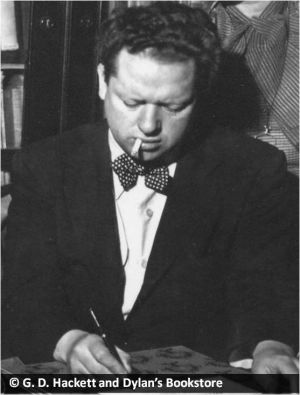Project details
This prestigious Arts and Humanities Research Council (AHRC) Fellowship, worth £86,000, will enable Professor John Goodby to visit holdings of Dylan Thomas manuscripts in US university libraries in Buffalo, N.Y. and Austin, Texas among other locations.
Professor Goodby has published the first full-length study of Thomas’s poetry to appear since the 1960s. The Poetry of Dylan Thomas: Under the Spelling Wall was published on 31 July 2013 with Liverpool University Press.
Both works aim to re-interpret Dylan Thomas in an early twenty-first century context. Unlike the ninety-one poems of the last edition of Thomas, the new edition will include roughly 160 poems. The new edition will also present the poems in chronological order of composition, allowing readers to trace Thomas’s development.
Thomas’s anticipation of the perils of celebrity in his own early death are part of what made him a favourite of the Beatles, Bob Dylan, former US Presidents Bill Clinton and Jimmy Carter, and film and rock stars such as Cerys Matthews and George Clooney (who recites ‘And Death Shall Have No Dominion’ in full in his film Solaris). Significantly, he was the first poet to work in all the broadcast and recording media of his time – radio, film, LP and television – and his unique status as a difficult poet, who nevertheless has mass appeal, has made him an enduring cultural icon.



